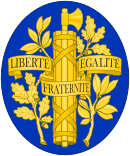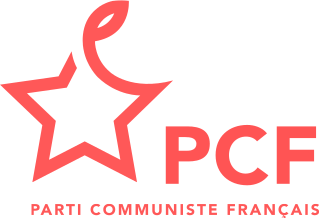
The French Communist Party is a political party in France which advocates the principles of communism. The PCF is a member of the Party of the European Left, and its MEPs sit in the European United Left–Nordic Green Left group.
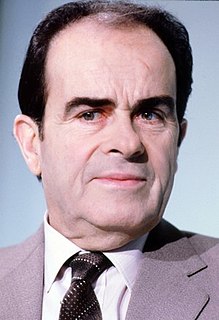
Georges René Louis Marchais was the head of the French Communist Party (PCF) from 1972 to 1994, and a candidate in the French presidential elections of 1981.

Maurice Thorez was a French politician and longtime leader of the French Communist Party (PCF) from 1930 until his death. He also served as Deputy Prime Minister of France from 1946 to 1947.

Pierre Juquin is a French communist politician and trade unionist.

French legislative elections took place on 14 June and 21 June 1981 to elect the seventh National Assembly of the Fifth Republic.

The French legislative elections took place on 12 and 19 March 1978 to elect the sixth National Assembly of the Fifth Republic.
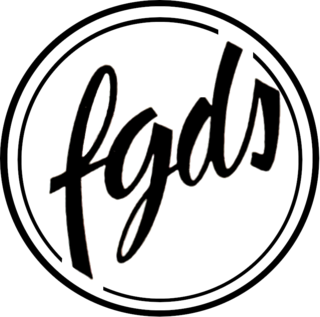
The Federation of the Democratic and Socialist Left was a conglomerate of French left-wing non-Communist forces. It was founded to support François Mitterrand's candidature at the 1965 presidential election and to counterbalance the Communist preponderance over the French left.
The Democratic and Socialist Union of the Resistance was a French political party founded after the liberation of France from German occupation and mainly active during the Fourth Republic (1947–58). It was a loosely organised "cadre party" without mass membership. Its ideology was vague, including a broad diversity of different political convictions with descriptions ranging from left-wing via centrist to conservative. It was decidedly anti-communist and linked with the Paix et Liberté movement. The UDSR was a founding member of the Liberal International in 1947.
The Epinay Congress was the third national congress of the French Socialist Party, which took place on 11, 12 and 13 June 1971, in the town of Épinay-sur-Seine, in the northern suburbs of Paris. During this congress, not only did the party admit the Convention of Republican Institutions into its ranks, but the party leadership was also won by Mitterrand and his supporters. For the observers and the French Socialists themselves, the Epinay Congress was the real founding act of the current PS. It was also the turning point in Mitterrand's grand political plan, which led to the ascendancy of the French Left over the next quarter-century, and eventually, in 1981, to Mitterrand's election to the Presidency of France for two consecutive 7-year terms.
The Gauche Plurielle was a left-wing coalition in France, composed of the Socialist Party, the French Communist Party, the Greens, the Left Radical Party, and the Citizens' Movement. Succeeding Alain Juppé's conservative government, the Plural Left governed France from 1997 to 2002. It was another case of cohabitation between rival parties at the head of the state and of the government. Following the failure of the left in the 2002 legislative election, it was replaced by another conservative government, this time headed by Jean-Pierre Raffarin.
The Metz Congress was the seventh national congress of the French Socialist Party which took place on 6, 7 and 8 April 1979. The debate was influenced by the failure to update the Common Programme with the French Communist Party, and the unexpected defeat of the "Union of Left" at the 1978 legislative election.
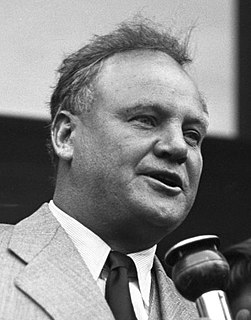
Legislative elections were held in France on 10 November 1946 to elect the first National Assembly of the Fourth Republic. The electoral system used was proportional representation.
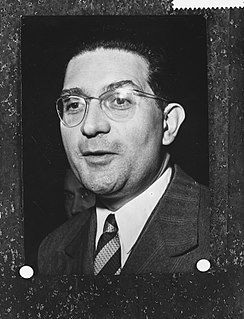
Legislative elections were held in France on 17 June 1951 to elect the second National Assembly of the Fourth Republic.

Legislative elections were held in France on 21 October 1945 to elect a Constituent Assembly to draft a constitution for a Fourth French Republic. 79.83% of voters participated. Women and soldiers were allowed to vote. 522 seats were elected through proportional representation.

Huguette Bello is a French politician from Réunion.
The Democratic and Republican Left group is a parliamentary group in the National Assembly including representatives of the French Communist Party (PCF) as well as leftist parties with bases in Overseas France.

The Left Front was a French electoral alliance and a political movement created for the 2009 European elections by the French Communist Party and the Left Party when a left-wing minority faction decided to leave the Socialist Party, and the Unitary Left, a group which left the New Anticapitalist Party. The alliance was subsequently extended for the 2010 regional elections and the 2012 presidential election and the subsequent parliamentary election.

Regional elections were held in France on 14 and 21 March 2010. At stake were the presidencies of each of France's 26 régions, which, though they do not have legislative autonomy, manage sizable budgets.

The 20th constituency of Nord is a French legislative constituency in the Nord department.
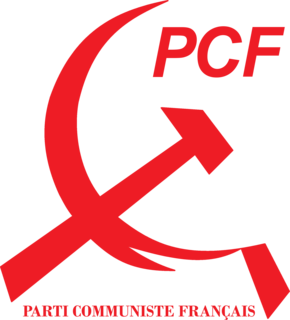
The French Communist Party has been a part of the political scene in France since 1920, peaking in strength around the end of World War II. It originated when a majority of members resigned from the socialist French Section of the Workers' International (SFIO) party to set up the French Section of the Communist International (SFIC). The SFIO had been divided over support for French participation in World War I and over whether to join the Communist International (Comintern). The new SFIC defined itself as revolutionary and democratic centralist. Ludovic-Oscar Frossard was its first secretary-general, and Ho Chi Minh was also among the founders. Frossard himself resigned in 1923, and the 1920s saw a number of splits within the party over relations with other left-wing parties and over adherence to the Communist International's dictates. The party gained representation in the French parliament in successive elections, but also promoted strike action and opposed colonialism. Pierre Sémard, leader from 1924 to 1928, sought party unity and alliances with other parties; but leaders including Maurice Thorez imposed a Stalinist line from the late 1920s, leading to loss of membership through splits and expulsions, and reduced electoral success. With the rise of Fascism this policy shifted after 1934, and the PCF supported the Popular Front, which came to power under Léon Blum in 1936. The party helped to secure French support for the Spanish Republicans during the Spanish Civil War, and opposed the 1938 Munich agreement with Hitler. During this period the PCF adopted a more patriotic image, and favoured an equal but distinct role for women in the communist movement.
This page is based on this
Wikipedia article Text is available under the
CC BY-SA 4.0 license; additional terms may apply.
Images, videos and audio are available under their respective licenses.
